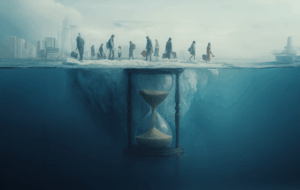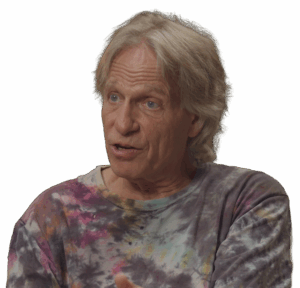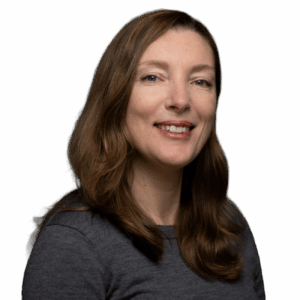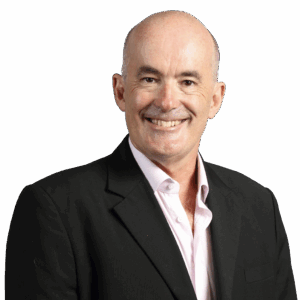
Show Summary
On this episode, Nate welcomes back journalist, inventor, and low-tech expert Kris De Decker to take a deeper dive into a more human-powered system on the backside of the carbon pulse. Through both historical and experiential lenses, Kris shares five creative alternatives to current high tech systems – from hot water bottles to electric buses and preventative-focused healthcare systems. Could a move towards communal services and human-power also shift our mindsets to think twice about how much energy is actually needed to thrive and still be comfortable? Will society willingly move from a resource intensive growth economy towards a lower energy, human powered economy?
About Kris De Decker
Kris De Decker shifted from a journalism career covering high tech to exploring low tech through formal and personal research and projects, including the Human Power Plant and the Solar Powered Website.
De Decker is creator and author of Low Tech Magazine and No Tech Magazine, publications which explore low tech solutions to questions society assumes must be solved through high tech.
De Decker has contributed articles about science, technology, energy and the environment to Mother Earth News, Techniques et Culture, Design Magazine, The Oil Drum, Resilience, EOS, Molenecho’s, “Knack”, “De Tijd” and “De Standaard”. De Decker’s books “Energie in 2030” advised the Dutch government on challenges related to science and technology and his book “Stralingswarmte: gezonde warmte met minder energie” provided a guide for how heat works.
In French, we have a motto that says that a simple drawing is often better than a long explanation. Jean-Marc Jancovici Carbone 4 President
That’s very understandable because with left atmosphere thinking, one of the problems is that you see everything as a series of problems that must have solutions. Iain McGilchrist Neuroscientist and Philosopher
We can’t have hundreds and hundreds of real relationships that are healthy because that requires time and effort and full attention and awareness of being in real relationship and conversation with the other human. Nate Hagens Director of ISEOF
This is the crux of the whole problem. Individual parts of nature are more valuable than the biocomplexity of nature. Thomas Crowther Founder Restor
Show Notes & Links to Learn More
00:40 – Kris De Decker Info, Works, TGS Podcast Part 1 + Low-Tech Magazine
03:10 – Joslin Faith Kehdy TGS Podcast
03:24 – Lebanon Financial Crisis
05:08 – Benefits and limits of solar power
06:55 – Most human work has now been mechanized
07:23 – One human can do the work comparable to that of a solar panel
12:55 – Kris’s bike generator
13:35 – LED Lights
14:35 – Human Powered Neighborhood
15:30 – Windmills in Medieval Holland
20:33 – DJ White + TGS Episode
21:09 – Fireless slow cooker
23:11 – Complexity of silicon wafers made in solar panels
23:26 – Current 6 continent, just-in-time supply chain
25:24 – Simon Michaux + TGS Episode Part 1 and Part 2
26:20 – Limitations on materials to support full build out of wind and solar
27:10 – HVAC
28:08 – Modern heating and cooling systems are very inefficient
28:52 – How people managed temperature before the 1950s
31:30 – Radiant heat
31:03 – Conduction
32:38 – Thermal Hot Water Bottles
37:27 – Jevons Paradox
40:05 – Historical communal services
42:45 – Urban Heat Island Effect
44:58 – Progression of personal living spaces and them getting larger
45:48 – 40% of Dutch people regularly feel lonely
46:28 – Roman bathing houses
46:40 – Hammam, Sentō, Finnish communal bathing
47:06 – Western Europe stopped bathing themselves
47:45 – Energy surplus has fueled individualism
47:57 – Peak of energy surplus
50:01 – Apartment Hotels – kitchenless apartments
51:25 – Soviet Communal Apartment
51:23 – Nuclear family
52:15 – Push for women to leave the labor force after WW2
53:43 – We live in a socialism for the rich system
54:45 – Anarchist
59:55 – Indoor kitchen and laundry pollution
1:04:15 – E-bike
1:04:57 – Trolley Bus
1:05:15 – Cable Cars
1:08:01 – Lyon, France
1:08:32 – Trolley buses associated with poor and communism
1:09:15 – Dr. Robert Lustig + TGS episode, Dr. John Kitzhaber + TGS Episode
1:09:40 – The US poor healthcare outcome compared to other OECD countries
1:10:15 – Environmental footprint of the healthcare system
1:12:15 – US medical system designed for profit
1:14:25 – There are more people in the world who are overweight than underweight
1:16:00 – Single use products in the medical industry







